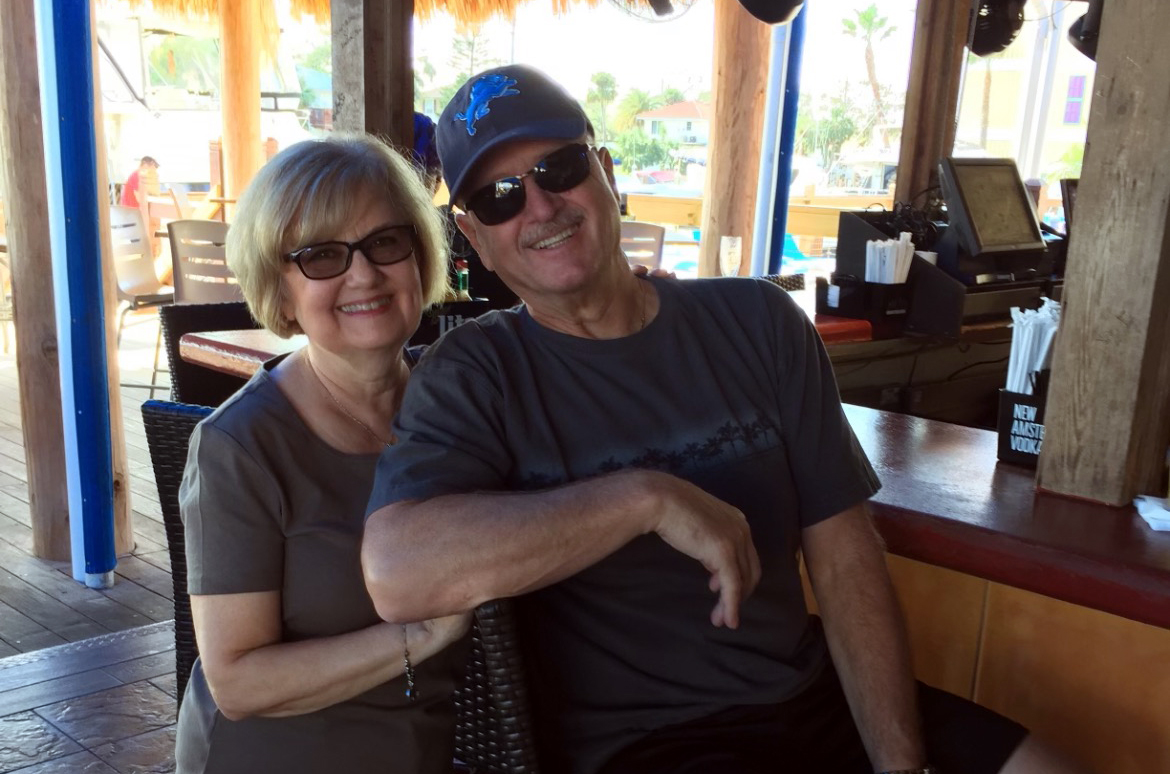
JOHN SIELICKI:
Told His Tumor Was Inoperable, John Sielicki Sought a (Life-Saving) Second Opinion
Written By: Julia Brabant
April 12 2021
Date of Diagnosis: Mid-May, 2012
Current Status: No sign of recurring cancer
A pancreatic cancer diagnosis is enough of a gut punch, but in John Sielicki’s case, the hits kept coming. Told his tumor was “unresectable,” or inoperable, back in May of 2012, John currently shows no sign of recurring cancer and serves as living proof of the value of seeking a second opinion.
John first sought medical care after experiencing a combination of stomach issues and acid reflux. His doctor recommended Prilosec, which decreases acid levels in the stomach. When that did little to relieve his symptoms, he went back to the doctor for bloodwork. His doctors thought it might be pancreatitis and said he may need to have his gallbladder removed.
An ultrasound at the hospital followed, revealing a cyst on the tail end of John’s pancreas. Determining it might be cancer, doctors sent John for a biopsy. The findings were bleak. Not only did he have a cancerous tumor, but he had a cancerous tumor doctors couldn’t remove because it was too intertwined with his veins.
“If we try to cut it out, you’ll bleed out,” John’s doctor had told him, instead recommending he begin a mild form of chemotherapy. John wasn’t thrilled with that “option.”
“They were playing defense, instead of offense,” he said, making what was a potentially life-saving decision to pursue another medical opinion. He made an appointment at Detroit’s Karmanos Cancer Institute, where his new doctor recommended a far more aggressive form of chemotherapy.
Thus began a year of chemo. John started taking a cocktail of sorts that included two forms of chemo administered through an IV and a third form he could take at home through a pump and what was essentially the medical equivalent of a fanny pack.
The chemo went as well as chemo can go. He was definitely more tired than usual, and he found that his extremities became extremely sensitive to the cold. Everything he ate tasted like cardboard, but all in all, the treatment was showing signs of success. After a year of the treatments, doctors said that, while they knew the cancer was still there, they were unable to see it on scans.
There, Dr. Evans reviewed John’s case and the progress he’d made through chemotherapy. Ultimately, he determined that John was now a strong candidate for surgery. On November 6, 2013, John underwent an intensive, six-hour procedure where doctors removed half of his pancreas, his spleen and his lymph nodes.
While the procedure was an arduous and difficult one, and John experienced a lymph node recurrence soon after. He underwent radiation five times weekly to treat the recurrence and again responded well.
Now, he returns for annual follow-up cat scans, which have, to date, shown no recurrence of cancer. He still experiences neuropathy in his hands and feet, which is something he’s had to learn to live with. He can’t stand or walk for as long as he used to, but he’s developed a love of cycling since his surgery and now spends the better part of most mornings biking in and around his home in St. Augustine, Florida.
“He and his team – they really did save my life,” John said of Dr. Douglas B. Evans, Chair of the Department of Surgery at the Medical College of Wisconsin and his colleagues. He also credited his doctor at Karmanos, Dr. Philip Philips, for his aggressive approach to treating him and gives great credit to his wife, Marianne, for her ongoing love and support.
He also has some advice to share with patients who may, like he often did, find themselves lying awake at night wondering what lies ahead.
John has shown no signs of recurring cancer since October, 2013.



